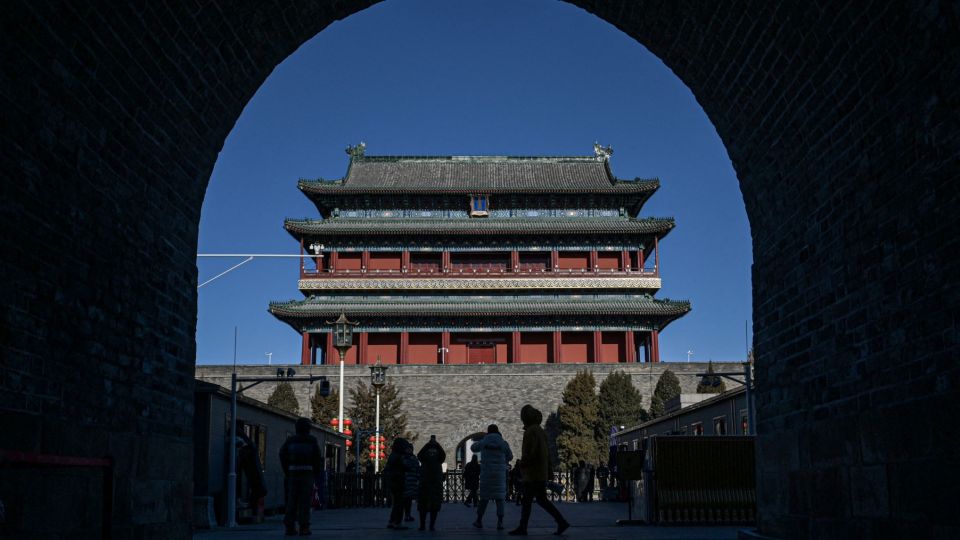September 1, 2025
SEOUL – South Korea’s top diplomat on Sunday downplayed speculation that the Lee Jae Myung administration could see its first inter-Korean interaction during China’s Sept. 3 “Victory Day” celebrations — an event set to feature the leaders of China, North Korea and Russia standing shoulder to shoulder in a show of unity.
Both South Korea’s National Assembly Speaker Woo Won-shik and North Korean leader Kim Jong-un are scheduled to attend events marking the 80th anniversary of the end of World War II, following Japan’s surrender.
The commemorations will notably include a massive military parade at Tiananmen Square, where Kim, Chinese leader Xi Jinping and Russian President Vladimir Putin will stand side by side — a tableau laden with geostrategic ramifications.
Foreign Minister Cho Hyun struck a pessimistic note when asked about the chances of Kim and Woo interacting on the sidelines of the celebrations in Beijing.
Cho pointed to Kim’s explicit designation of inter-Korean ties as “hostile” — the label that first emerged during the year-end party plenum in 2023 and has continued in North Korea’s public statements ever since.
“In relations between states, what matters is not whether people have seen each other’s faces before or have met in the past, but rather the policy at the time,” Cho said during his televised interview with KBS aired Sunday morning.
“The outlook is not very hopeful for now as to whether North Korea will make contact with us this time, whether that be with the Speaker of the National Assembly or with any member of the South Korean delegation, and kickstart talks.”
Kim and Woo became acquainted during a banquet at the Peace House in the truce village of Panmunjom during the April 2018 inter-Korean summit, where they exchanged greetings and clinked glasses.
The Kremlin on Friday disclosed that Putin will sit to the right of Xi, while Kim will sit on Xi’s left, citing information shared by China with the Russian side.
Woo’s position in the seating arrangement, as an Assembly speaker rather than a head of state, has not yet been disclosed.
The gathering will bring together 26 leaders — including those of some of the world’s most heavily sanctioned states such as Russia, North Korea, Iran and Myanmar — marked by the conspicuous absence of Western counterparts.
During the 70th anniversary in 2015, then-South Korean President Park Geun-hye and Choe Ryong-hae, who was a key confidant of Kim Jong-un and secretary of the Party Central Committee, both stood at the Tiananmen rostrum. However, no contact took place as they were seated far apart.
Woo Sang-ho, senior presidential secretary for political affairs, said Thursday that if a meeting happens this time, it will probably occur at a reception, where movement is comparatively freer, rather than at the military parade.
When asked about the significance of Kim’s participation in the Sept. 3 commemorations — his debut on a multilateral diplomatic stage — Cho said Pyongyang may be trying to recalibrate its diplomacy that has been tilted toward Russia.
“North Korea has drawn very close to Russia recently, even going so far as to dispatch troops. … North Korea must have also come to realize the limitations (of its reliance on) Russia,” Cho said. “That is why it may have been looking for an opportunity to restore its somewhat frayed ties with China.”
Cho further explained that Kim’s presence would bring both opportunities and risks.
“It can be seen as Chairman Kim Jong-un stepping onto the international stage in one respect, and if we may be hopeful, it could serve as an opportunity for North Korea to engage with the international community.”
“On the other hand, however, if North Korea were to deepen its cooperation with China and Russia, we would inevitably have cause for concern. Therefore, our government will closely monitor developments and prepare thorough countermeasures.”
Former National Assembly Speaker Park Byeong-seug, who led President Lee’s special delegation to China from Aug. 24 to 27, underscored that seeing Xi, Kim and Putin together atop Tiananmen Gate “carries profound symbolism.”
“It could lead to a major change in the political landscape around the Korean Peninsula, so we must carefully adjust our stance,” Park said during his interview with Yonhap News TV on Sunday.
National security adviser Wi Sung-lac said, “There could be a summit with China, or even with Russia, and I also consider the possibility that there may be yet another format of talks,” in a local CBS radio interview on Friday.
Asked about the likelihood of a China-Russia-North Korea trilateral summit, Wi declined to give a clear answer but noted that such an unprecedented meeting would inevitably intensify the fault line between the China-Russia-North Korea axis and the South Korea-US-Japan alignment.
“If that happens, what might be called group-based dividing lines would likely become more entrenched,” Wi said.


